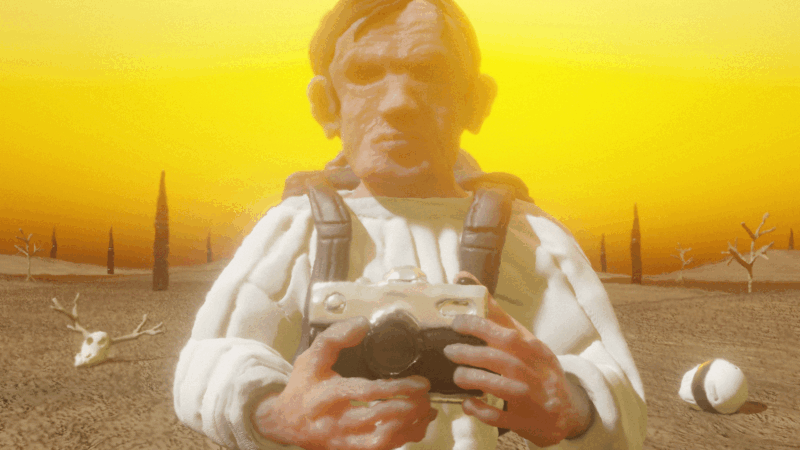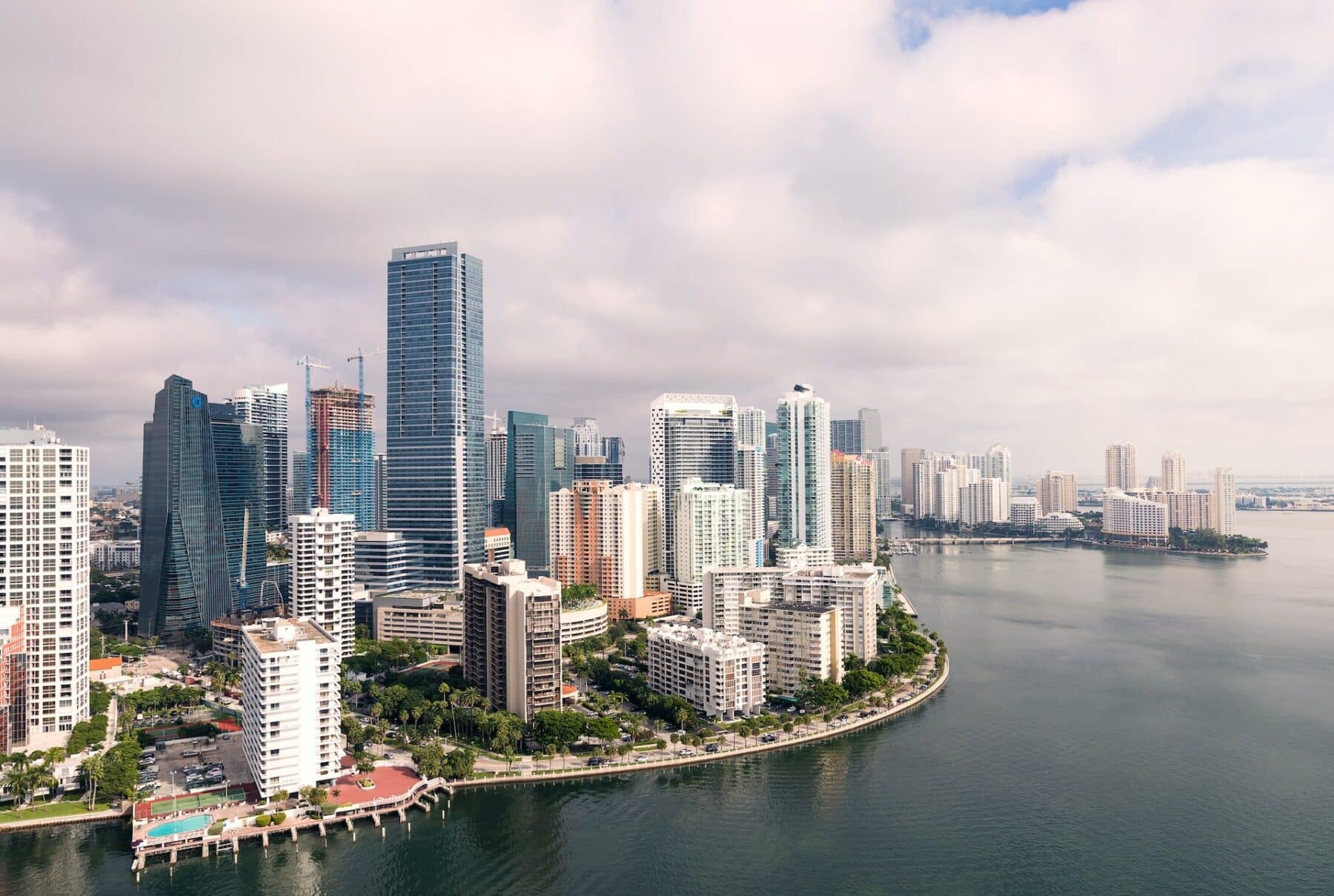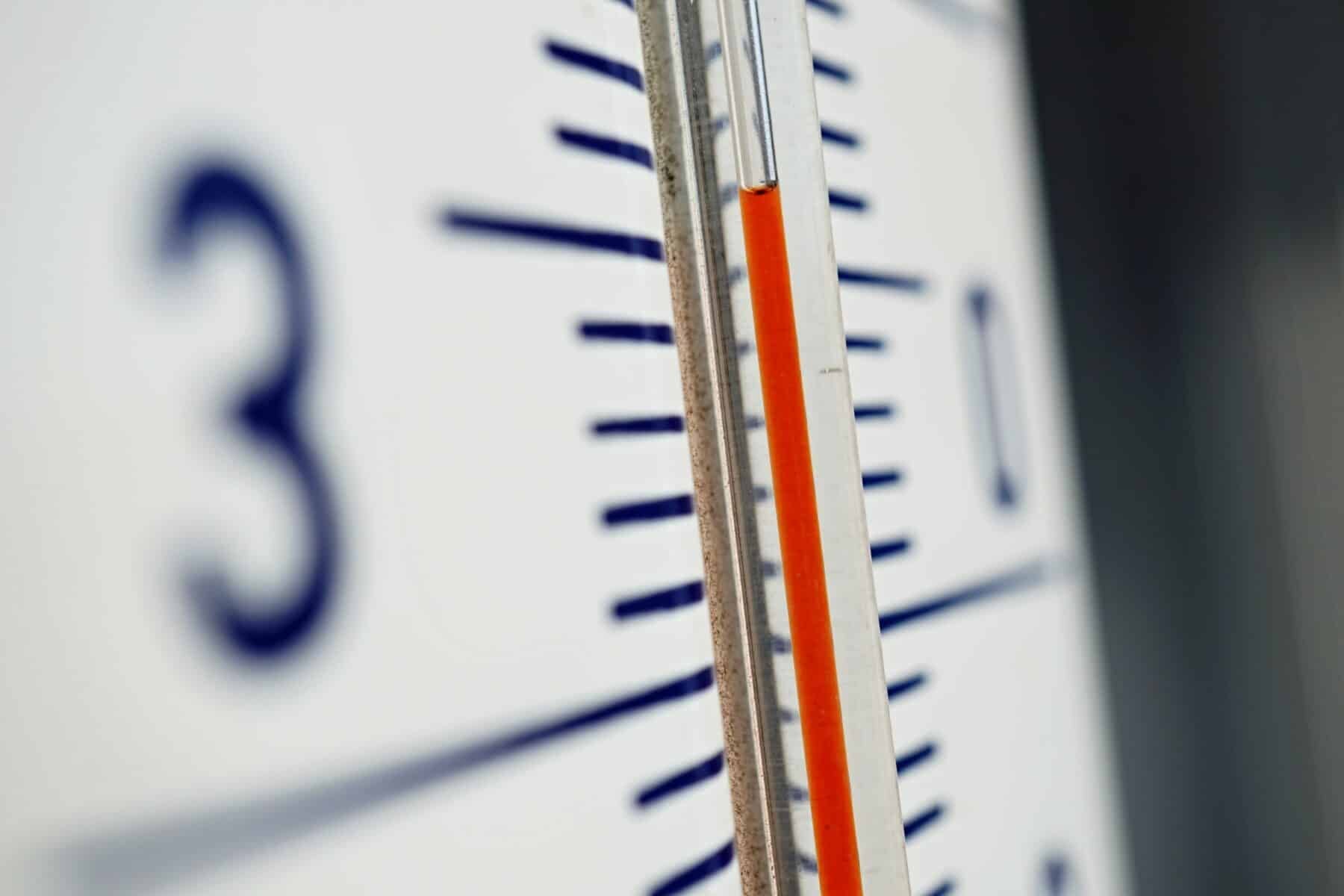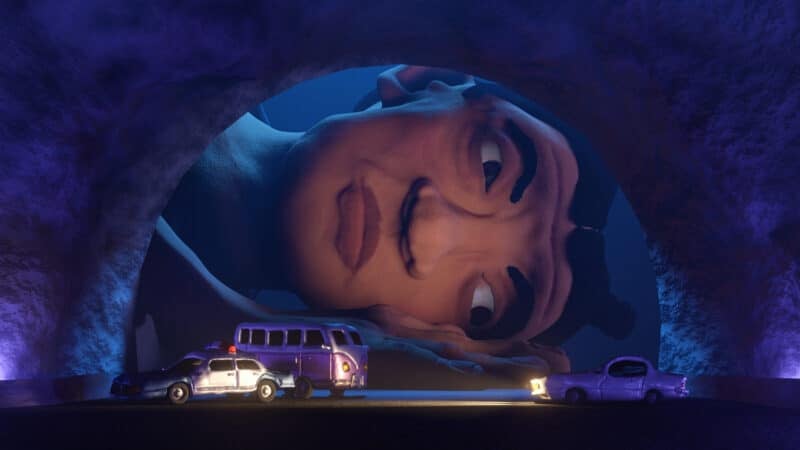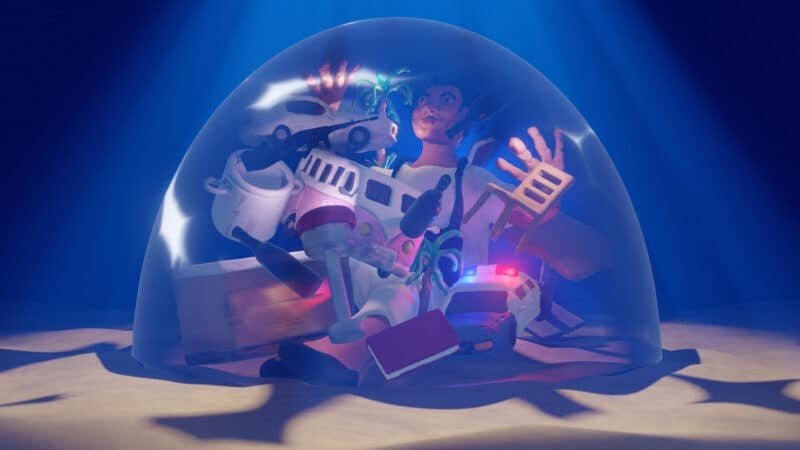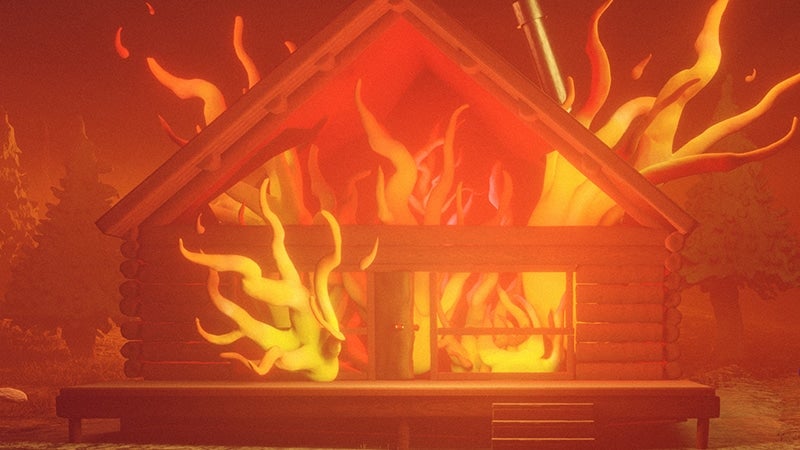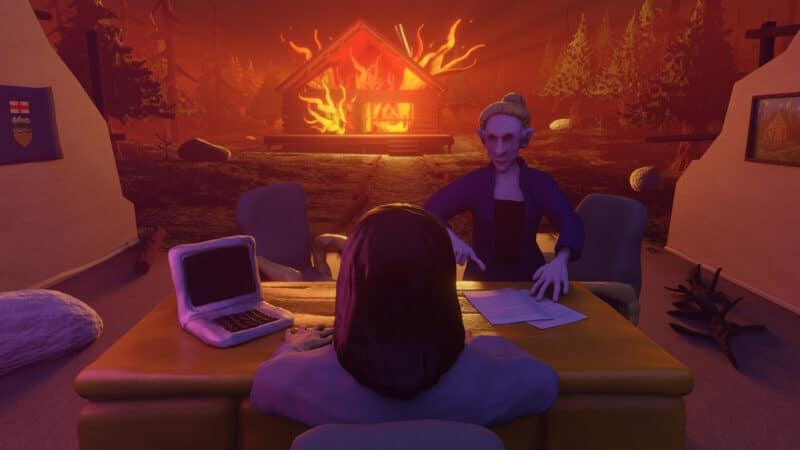It had once been an animal, that much is certain. The sun has shrunk the water bottle to one-third its size, and the remaining mass is slumped over an adjacent rock. The pit forming in my stomach mirrors the nugget-sized carcass at the bottle’s center. Four legs pulled into a torso, no fluffy tail, leather holes where eyes once blinked. Mammal, reptile, or amphibian, the sun and humidity don’t care. They kill now. Together.
My mind plays the critter’s slow crawl into the vessel, scrabbling for a drop of water. That’s where it stayed, cooked inside the gas-station water bottle. Perhaps it was a stray migrant from the animal exodus that’s been in the news? Animals have been fleeing the concrete island en masse. They’re moving on, while we humans are dumb enough to stay.
I focus the lens of my camera to balance the visual presence of the once-animal within its single-use coffin. Before I take the shot, I watch its little fingers clutching the air and swear they twitch.
Twenty-nine years of life have led me to this conclusion: Living through historic times is exhausting. I often hear words like “unprecedented” and “unforeseen,” as if our present circumstances are the result of some magic spell cast upon our land, instead of the actual cause: a compounding force of preventable decay. “Wet-bulb effect” wasn’t in that crystal ball. Neither was “shade technician” or “The Shift.”
The heat machine is too perfect. Once started, it only ramps up—bringing in industries, new jobs, and new words that become common knowledge. Here’s one: the wet-bulb effect, which measures the deadly combination of heat and humidity. The wet-bulb temperature is the lowest temperature to which an object—like a human body—can be cooled down by evaporation. As the wet-bulb temperature climbs, sweating no longer helps; the body cooks itself. By the middle of the century, the rest of the Midwest will take the same hit our city has already weathered—outside is and will be uninhabitable.
The heat machine is too perfect.
Here’s another new word: shade technician. I am one. My dad, and his dad, don’t know what that means; it’s a macabre new career path they never thought to prepare us for in school. I maintain devices that produce shade, which makes traversing the city survivable under soaring wet-bulb temps. The devices, called umbras, were designed for conditions up to 97 degrees Fahrenheit and 90% humidity, when walking outside feels like swimming, all of us out of breath, panting, drowning. Today, I’ll face temperatures of 105 degrees. Without my cooling suit, my body would shut down in minutes.
Lastly, there’s The Shift. It got hotter much faster than models predicted, creating the need for additional cooling infrastructure. More shade, less heat-trapping concrete, making cities more livable and preventing heat-related illness; on particularly hot days, our hospitals are quickly overwhelmed. Until those measures can be put into place, most of the workforce labors at night and sleeps during the day. The city has become functionally nocturnal. Most people buck their circadian instincts, retraining themselves to stay up later and later. But what about the rest of us, stuck doing “essential work” on the day shift?
We are the weathered. A weathering: a stone constantly beaten by a river’s current, drops of water added to wet paper until it rips from the erosion and pressure. We are what’s left. We are the left-out.
My metal freebie token—a crucial part of the technician’s kit—kerplunks in the change reservoir. The sound of mechanical flaps unfolding, then hitching and misfiring, echoes from the base of the umbra, indicating an electrical shortage (according to my trusty technical manual). I switch the power off, and the flaps go limp and descend. Despite the umbra’s heatproof coating, extreme external temperatures lead to internal overheating, baking the wiring. There’s a gallows-humor in the image of a melting shade structure.
The city has become functionally nocturnal.
I focus the lens of my film camera to show the umbra’s exposed bubbling tubules juxtaposed against its hard outer hatch, like a marine biologist examining a dissected deep-sea find. Point and shoot—whether you’re an urban camera hobbyist or a hunter on safari, the photographer’s mentality is the same. What I would call art, UMBRA’s PR team would call “highlighting product deficiencies,” painting the company in a bad light. Technically, UMBRA employees are allowed to take photos of the outside of the umbra devices, so long as they aren’t doctored and, ideally, if they’re accompanied by copy in what PR terms a “positive optimist” tone. If the photo depicts the umbra as part of a “healthy, sustainable urban lifestyle,” PR might even pay to share it on the company’s socials.
A push of wind reminds me I need to actually fix the umbra instead of parsing the company’s media strategy. I take the shot—the frozen black ooze has pooled and sizzled on the outer surface, leaving behind an oily rainbow. In the camera’s viewfinder, the whole umbra is dark, metallic, and glimmering. It’s a technology whose dark majesty a camera can’t accurately capture. I picture this image as a sculpture with photographic elements, characteristic of my portfolio as a deflated professional artist. A slab of clay drinks in the cool blue of the cyanotype quite nicely, and UV exposure burns an image into the emulsion, leaving a picture colored in a gradient of blues. Exposure is the keyword here.
Exposures—exposed.
Sometimes an umbra stops working at the slightest internal irregularity. A melted coupling, bent wiring, something small and invisible to the untrained eye. In this case, one end of a tube carrying hydraulic fluid melted, filling the inside cavity—not an electrical shortage. A simple replacement. But when I fish the tube out, a loose end flops to the ground. I look inside to see if an internal mechanism could’ve severed the tube—a minute misalignment of precise machinery—and I find nothing. No evident cause.
I close the hatch and wipe away the fluid to see an impact wound on the umbra’s base. Old metal scraping new metal. Great, an incident report, I think, while I plug in the new tube and flip on the machine.
The umbra hisses back to life, unfurling its shimmering sails to their full span for just a moment, then folds back like a tree growing in reverse, retreating into its spike. Site 6, just north of the Downtown Rehabilitation Project, is littered with original umbras. (Umbri? I’m not sure of the plural. I’ll have to check with Branding on that one.) Picture a naked prairie, dotted with black spikes. When retracted, the umbras are taller than traffic cones, smaller than mailboxes, protruding from the pavement. When their sails are extended, they stretch several feet overhead. The original models run on a 60-minute timer. As the time ticks away, the circular sails grow apart, like a reverse Pac-Man gobbling itself into nothingness. Users pointed out that because of this gradual retraction, the device doesn’t really provide shade for an hour; the shaded area is always shrinking.
The original umbras are old and ill thought-out when compared to UMBRA’s model 2.0. The updated version takes inspiration from the arched, serene interiors of cathedrals. The user enters the structure, pays with a card or app, and the shades contract around the openings, shielding the body from sunlight while dehumidifying the air inside, gradually filling an attached vessel with water.
For each hour spent working outside, workers are legally required to take a 15-minute cooling break to reduce the risk of heat-related illnesses, even when wearing suits. Umbra 2.0 meets the evolving requirements for shaded structures and even dispenses a complimentary cup of water. The Future just got cooler.
UMBRA initially got its target demographic wrong. The umbras were never popular among tourists, well-heeled city dwellers, or professional-class commuters. Instead, the devices became essential for daytime laborers with construction and cooling infrastructure firms, which make up a sizable portion of UMBRA’s contracts for the next few years. For now, there’s more of a future with the umbras than without them. It’s already hard to imagine their absence. I can’t picture a spikeless field. Increasingly, there are few of us who can.
The devices became essential for daytime laborers with construction and cooling infrastructure firms.
So who would bother to sabotage one of these old umbras, and why? They’ll all be replaced within the year, anyway. The mystery bobs up and down in the current of my thoughts. Meanwhile, inside my cooling suit, water sloshing in the tanks around my calves shoots up and circulates through the intricate system beneath the off-white fabric—another circulatory system on top of my own. With every step, a river flows over the heat maps of the human body, under the pits, across the chest and back.
The whirr of the fan in my helmet is a clock my ears have learned to tune out, along with the sounds of the fluid moving through tubes across my body. For our safety, there’s no music, which reminds me of the sobering fact that aside from the other umbra workers and cooling infrastructure teams with fast-tracked projects, nobody is out here—no one’s supposed to be out from sunup to sundown, that is. Not even the cicadas sing here anymore. The only song we hear is the wind.
But now I also hear a soft lullaby of metal. I squint my eyes through my visor and see the shadow of an outstretched umbra up the hill. The man seated beside it is as lean as the umbra pole—I can tell by the way his knees hit his chest. The grass crunches under my feet as I approach the umbra. He starts to pack up, throwing his sack over his shoulder, ready to dart and scurry. I realize I’m dressed like a spaceman—of course he’s terrified.
“You don’t need to leave,” I say. “Please stay in the shade.” I reach for a freebie token and the man quivers. “I’m just restarting your time.” When the sail blooms, shade falls over his freckled face. He has long, straw-colored hair held back by a bandana; everyone uses some form of cooling cloth these days. His eyes are the kind of blue that always looks watery, like he’s about to cry. He beams a smile, revealing a gap in his front teeth.
“Well, why didn’t you say so?” the man says.
“You were about to dash.”
“I know this is a restricted perimeter,” he says. “But it’s the only place in town with old-model umbras. I have all this change.” He holds out his hands, jangling a stack of battered coins.
“Unfortunately, this area is getting upgrades,” I say. “I hate to bring bad news.” He places the trove of coins in his canvas New Yorker sack and dusts off his hands on the front of his pants.
“How long will that take?”
“Within the month,” I say. “I’m Spencer.”
“Call me Buddy. I thought you were a mirage from my mind, the way you glided across that field.”
“Not today,” I joke. “I’m about to take my break. Would you like company?”
“There’s more than enough shade for the two of us,” Buddy says, and plays a little melody on an instrument he produces from his bag. It fits in his palm and shines like a seashell—the opaline glint catches the sunlight. Eight flat, bronze keys protrude from the middle, and as his thumbs hit different combinations of notes, they reverberate, making their clunky chime. “This is my kalimba I made from a seashell down on the coast.”
“It’s beautiful,” I say, thinking that Manny would love to hear this. I picture him at his writing desk, penning a poem while streaming kalimba music for hours at a time. It’s a peaceful sound to imagine to…
“Could you take my picture?” Buddy asks, snapping me from my reverie. “I’ve never had my picture taken analog before, even as a baby—I’m pretty sure.”
I think of all the times I goofed taking pictures in the studio or out in the wild. The candid shots of Manny cooking or writing, my family members in unflattering poses. Random wads of gum on the street I tried to convey as meaningful. Hearing I’ve never had my picture taken forces my brain to collage all these nonsense shots into an amalgam masquerading as art.
“I’ve never had my picture taken analog before, even as a baby—I’m pretty sure.”
My head feels tight, growing somehow in the space of the helmet, as I start to tear up. I stand up to take the helmet off. The fan positioned along my neck dies. The vacuum seal tugs around my face, leaving me almost breathless. Inside the suit, I’m fine, feeling nothing but sanctuary, lulled into a false sense of safety. But here’s Buddy living—not thriving—without one. A critter escaped from its bottle.
“While you think of a pose, let me get a close-up of your kalimba,” I say. “Step into the sun a little.” Buddy pokes his hands past the perimeter of the umbra, bathing them in harsh sun. His kalimba dazzles, juxtaposed against the roughness of his leathery hands.
“Okay, next.”
“Well,” Buddy starts. “How about this?” He retreats into the circle. Laying down on his back, he crosses his dusty boots, leaning against the umbra’s base. He pulls a wide-brimmed hat from his tote and tips it over his face, leaving the faintest of smirks visible. It’s a pose of leisure, suggesting I won’t let anything get me down. His kalimba is tucked in his breast pocket, peeking out a little. I think of a title for the photograph: “Tired Kalimba Player.” No, no: “Kalimba Player’s Rest.”
“You look pretty cool in that one,” I say. “Can you give me an alligator smile?”
On command, Buddy grins from ear to ear, rustling the kalimba out from his pocket to cup in his palm. “Perfect,” I say. “I can come back tomorrow and deliver the hard copies, if you’d like.”
“You mean I get to keep them?” Buddy asks. “I was content with just being your model. A muse, you know.”
“I’ll develop them tonight and be back here around the same time.” His eyes begin to well.
“It takes a person to recognize that you’re also a person,” Buddy says.
Loneliness evaporates off his body.
“It does, Buddy, it does.” I hand him enough tokens to power the umbra till nightfall. “Stay safe.”
When the shuttle delivers me back to HQ, I join the other techs from my shift at the row of bubbles—temperature-stabilizing cells that cool us down gradually after we’ve shed our suits. Shock is common when the body tries to cool down too quickly after prolonged heat exposure. After about 40 minutes, we’ll hit the showers. The Medical team keeps track of our vitals during de-escalation. There are three other techs in the bubble, but none that I know. I try to remain calm, fighting off nausea and a dull headache as my body fumbles for equilibrium.
For me, the worst part of de-escalation is the fear of passing out. Two years ago, I fainted during my MFA exhibition, smashing my six-foot frame into the cool tile. I hadn’t been drinking enough water. It was my thesis show, and I watched a wealthy patron taking pleasure, or pity, in my sculpture covered in blue photographs called cyanotypes. The sculpture was a clay figure, an abstracted caricature of a suited man readying himself by adjusting his bubble-round jacket. With no eyebrows and little dots for eyes on an otherwise adult-sized face, the sculpture oscillated between Ken doll and Walmart-yellow smiley-face sticker. People either hated or loved looking into the bubblegum gleam of his forehead and comb-over.
The cyanotypes mimicked a Prada pattern I’d found in the back of Vogue, and featured miniaturized photographs of my childhood, rendered in white and blue: digging up pig bones in the backyard, mistaking them for dinosaur remains; my grandfather bracing himself against a rusted gate to bring a piglet within petting distance; shouting a victorious toddler’s yawp from the back of a grazing horse as if I were riding a walking mountain. Tattooed memories floating on marble.
The sculpture apparently spoke to the patron. He seemed caught in its orbit. He strutted around it, surveyed it from the far corner of the room, and produced a magnifying glass to scrutinize the vignettes. “Spencer,” Manny whispered, “I’m surprised he hasn’t sniffed it yet.” We both chuckled as the patron walked up to us, claiming he’d like to purchase it.
“You’re selling yourself short with this one,” he started. “The juxtaposition of metropolitan longing and Midwestern nostalgia is compelling me to add another zero at the end of your check.” Manny’s mouth dropped, and I dropped to the floor unconscious, suffocated by hot success.
Like emerging from a dream’s deep waters, the light was acute before it filled in the rest of my vision. Manny’s was the first face I saw, copper eyes framed by rust-colored bangs. “Spencer, Spencer, Spencer,” he commanded.
“I’m fine, my love,” I told him. “Everything is so beautiful now.”
“That’s the concussion talking,” Manny said. “Everything will be a little fuzzy.”
“It’s like the hard edges are humming.”
“That’s the gossamer love,” Manny said and kissed my forehead. My would-be patron went to call an ambulance; we never saw him again. Manny and I would joke about the incident later, calling it an expensive date—I still haven’t attempted to remake the sculpture.
I remember its head, broken off at the neck, peering at me. I’d collapsed right into it.
Leaving the bubble now—the green light flicks on as we enter the locker room. I place my bag on the top shelf of my locker. While I’m draining the circulating liquid from the tubes threaded through my suit, I notice some puckering along the seams. I’ll report it to my manager on my way out, and he’ll dismiss it as normal wear and tear.
The shower’s pressurized arrows erase any inklings of worry about damage to my suit. The tenderizer, I call it. After sludging around in a suit of salty water for hours in the hot sun, you feel nothing less than hammy. I’ll spritz on some cologne once I’m back in my own clothes because you can never truly get rid of the smell, only cover it up. I reach for my bag and feel the weight of it, of the photos I’d taken: the carcass in the water bottle, the umbra fluid, Buddy and his kalimba. Documentation, I tell myself.
Being a shade technician was never a full-time dream. It’s a temporary way to pay the bills, so I can do the work that really matters. I check for signs of anyone creeping around. I’m greeted with the precise kind of silence I usually only encounter under the sun. Alone.
My watch sings; it’s 7 p.m. Manny will be waking up soon. We each try to be there when the other wakes up; if we can’t, we leave a note rather than calling or texting. Calling is reserved for absolute emergencies, and silenced texts go through quietly while the other sleeps. How to communicate with my partner working diurnal is one of the most frequently searched phrases on the internet. My time in online marketing revealed this insight. There’s a new audience of people our client’s blogs can cater to, our manager would type in teamwide messages. I quit that same day and didn’t care if I had a backup plan. Fuck the fuckers—I’m not helping companies profit from tragedy.
Abruptly, the world had flipped—deserted days, rumpus nights.
When temperatures started soaring, fatigue took a chomp out of all of us. I believe the expression is “worn down to a shadow.” After the first month, we Midwesterners were thinner than sandpapered onion skins. The urban heat island effect, with our miles of concrete and asphalt, turned cities into ovens. Despite our stubbornness, our way of life had changed. The law firm where Manny works took up nighttime hours as soon as The Shift was announced. Abruptly, the world had flipped—deserted days, rumpus nights. I stayed diurnal because hot daytime work was all I could find with an advanced degree in picture-taking.
Documenting, I think, for the body of work. It must be done.
Note-pebbling, a cultural phenomenon inspired by penguins gifting each other small rocks, has been a fad since The Shift. Manny and I make a game of it, hiding tender notes and affirmations in plain sight and concealing jokes meticulously. I rigged one to spring out of our coffee pantry when the doors were opened. The parcel read, “Do you still need coffee?” To which Manny grunted, still groggy, and filled up his mug with fuel.
It’s comforting to know Manny and I haven’t changed. Yet. There’s still a semblance of ourselves held over. I remember editing photos on my computer, Manny writing poems in the same room, our “rainy day vibe” playlist in the background. Upon completion he’d flip the paper over, letting the poem marinate before he’d ask me to read it aloud, so he could gauge the “mouth feel” of his words.
The Shift felt like passing out: Society checked out for a moment and when we came to, most of us were nocturnal, those left behind were diurnal, and couples “fortunate” enough to still have jobs, straddling both realities, had to find ways to make it work. Weekends are still a thing—but barely, with our clashing sleep schedules. If we try to tough it out and spend the whole day or the entire night up, one of us inevitably falls asleep, and the other covers him with a blanket, props his head with a pillow. We wake up to this ghost of kindness.
Usually, I’ll see Manny standing in the window from the driveway when I get home from work. He’ll lift his shirt up, flashing me. Once inside, I’ll make a smartass remark: “Leave something to the imagination, babe. And some for the neighborhood too.” But this evening, the window is dark, with a little lamp left on. I’ve missed Manny. I open the door and the ghostly blur of his recent movements flutters around our apartment. I can see the path he took from the bathroom sink to the kitchen, leaving a little gloop of toothpaste on the floor. His sandalwood-and-honey cologne still hangs in the air, filling our empty home with quiet grief.
I stay up for another hour or two, poking around my studio in the basement. I switch out the used film for a new roll. There’s the world’s smallest window with a little sill in the east corner of the house. I leave the transparency of a photograph over a paper with the cyanotype emulsion exposed to the light on the little alcove; by the time I come back from a shift, the images are fully cooked. I’ll pull the transparencies away from the paper, revealing the blue blur of the print, then take them over to the sink and wash the paper to kill the active UV chemical, leaving the cyanotype to dry on a rack. Depending on the paper, it’ll take two to three days to fully dry. The best blues take time. I’ll make more emulsions, put the papers and photographs on the sill for the next day, keep the conveyor belt going.
I don’t sense that Manny’s been down here. Sometimes he’ll look at my work for inspiration with his writing. The Ekphrasis Couple, we call ourselves. The current run of prints are renderings of the first photographs I had published on paper after finishing my MFA. For me, that publication marked the end of normalcy; The Shift was announced later that week. I had proof I did something with my degree. Other people had proof. I could show my relatives “the proof.”
In the photographs, a car has exploded at the end of a street—and firefighters are delayed for some reason. The fire begins in daylight and they arrive at dusk. The pressure from their hose is so strong it forces sparks out the passenger-side door. Bits of upholstery kindle on the sidewalk. The smoke from the car catches the blues of the siren engines and the reds of the fire—in the cyanotype, the smoke looks dusty and ethereal, and the faint outlines of the firefighters look lost. The image lived with people. Well, anyone who subscribed to that particular niche photography magazine. It lived with people who bought the gloss mag and that’s enough for me, I tell myself. I envision a whole wall of the single repeated image—a wall of blue fire.
Buddy’s photos turn out well: casual in their subject, sharp in their execution. He’ll enjoy seeing his jovial self, relaxing and thumbing his kalimba. As I hang the photos to dry in the darkroom, I notice a smudge on the base of the umbra behind Buddy. After a moment of scrutiny, I decide it’s original, not an artifact of my processing. I hang the umbra-ooze image next to it. In both photos, the ichor catches the light, creating a radiancy—the chemical process of the film camera struggling to capture its subject.
An idea oozes out of my ears, down my shoulders before settling on my shaky hand. There’s hydraulic fluid running out of Buddy’s umbra. It was cut with the sails out. The timer would run, but the device wouldn’t retract. When I went to deposit the freebie coin, I was inches away from seeing the back, where the hatch is located. I would’ve noticed the crowbar scrapes.
The timer would run, but the device wouldn’t retract.
I look at the photo again and don’t see a tool strong enough to open that hatch, though Buddy could have anything in his tote bag. Is he the saboteur? Even if he is, what good would it do to turn him in? The old umbras are slated for replacement anyway. He’s surviving. And I have plausible deniability—nobody has seen the camera or these photos. What umbra vandal? I’d tell my manager. I look down at the first photo I took today, of the desiccated creature trapped in the bottle, still suspended in the developer fluid. I put my tongs down, rest my face in my hands, leave them there for a good while.
I wash my hands upstairs and begin the ritual of getting ready for bed. It’s 9 p.m. when I lay my head down and I feel the negative space of Manny’s outline next to me, his craters and canyons in the charcoal covers.
I flip through my phone, trying to decompress, until I stray and my mindless searches turn into WebMDing, self-diagnosis. Vasovagal syncope pops up—triggers like stress, anxiety, heat, and trauma can make the body shut down and reboot. VVS can lead to secondary issues like bone fractures and concussions. I haven’t broken a bone—yet. I plug in the phone and turn on my side. I bury my right hand underneath my pillow, to support my head, and feel paper brush my palm. It’s a scrap from Manny’s gridded journal, folded four times: a pebbled note. I open a poem.
Don’t let the world permeate—
Don’t let the outside ruin good sleep—
The good blue of sleep.
I’ve told him that good cyanotypes are shades of blue: weathered bucket pall blue, denim blue, soul blue, deep blue, rich blue, electric blue, deep-ocean blue, grief blue, fruit blue, crystal candy blue, lapis blue, good-grief blue, simply a good blue. Now he’s added to the list. So, I drift into the good blue of sleep.
I wake up to a band of pulsating pain around my head where a crown would fall. I open my eyes and the light haloes, diffused, unable to focus on a single point. It could be dehydration or stress. I’ll pour a packet of electrolytes into my water and start the great chug as I get my bearings for work. A rectangle of light cuts through the door window and lands on the photograph of Buddy reclining, lying by my keys; the tableau looks like an art photograph in itself. Chiaroscuro slices Buddy’s torso in half—one part in shadow, the other in light. A photograph of a photograph of a person I only know well enough to know they’ve never had their picture taken analog.
Later, in the car, the picture bends slightly in my passenger seat. Stepping out the driver’s door, the wind nearly rips it out of my hand before I stow it in my messenger bag. Somehow the weight of the picture feels greater than the camera. The proof of the thing I’m not supposed to have. The proof of Buddy being a person. The proof of the umbra vandal.
Somehow the weight of the picture feels greater than the camera.
Sometimes I pretend my shadow follows me on my route, slinking over burned grass and steaming concrete. It’s less lonely this way in the empty downtown. When the cooling infrastructure team greets me from across the street, my shadow waves back, bending and stretching along the edges of buildings. We make our stops in the Bricktown district, checking out a few old-model umbras while construction workers replace the brick with a heatproof synthetic material that jiggles like jam until it sets. It takes five people to lift a cube of the stuff and plop it into the square hole. String 50 of them together and you have a street you can’t cook with.
Before The Shift, there was a novelty in cooking your meals on the bare sidewalk. Influencers would flock to the scorching walkways with their artisanal chef’s knives and subscription boxes of fresh produce, chopped fine and neat on cherrywood cutting boards no one could afford. Tripods perched on lawns pointed toward the ground like a hunter lying in wait. They’d talk us through a recipe they stole from another cook. They’d throw “urban” in front of the recipe name—urban banh mi, urban bison-gouda omelet—since it was cooked on “urban” concrete.
My headache persists and a pit forms in my stomach as my noontime meeting with Buddy looms. He’s sheltering at Site 6, a couple of umbras down from where we were yesterday. His thumbs crank out a whirl on the kalimba, emulating the wind rushing over sunbaked streets. He’s grinning from ear to ear. I try to assess the condition of the umbra out of the corner of my eye.
“Morning, Buddy,” I say flatly. “How’d you sleep?”
“About as good as you can when it gets all loud at night now,” Buddy says.
“You need a white-noise machine,” I say. I feel lightheaded and squeeze my calf muscles, hoping to send more blood to my brain. The black dots dissolve in my field of vision. The readout of the cooling suit suggests everything is normal.
“Did you bring those pictures?” Buddy asks.
“One turned out alright,” I say, handing him the photo. Buddy recreates his leisurely pose as dizziness fills my ears.
“It’s really me.”
“Listen…” I begin. Buddy says something else. He’s repeating something.
My vision flips as the word “button” escapes behind my deflated lungs. I stretch toward the distress button on the umbra’s spindle as I flop into inky darkness.
The incident report reads as follows:
The distress button at umbra B-037 was activated at 12:03 p.m. in the Brickwork district. At approximately 12:07 p.m., cooling infrastructure teams heard the distress alarm and located the umbra. They observed a tall man leaving the scene. Shade technician Spencer Luzbek was found unconscious due to a cooling suit failure. In his possession was one film camera. The ambulance arrived at 12:10 p.m. and transported the subject to the hospital for further medical evaluation.
“Is there anything you can add to this report?” the HR officer asks.
“That man wasn’t a threat or anything,” I say. “He was just using the umbra.”
“That’s not my lane, son.”
“He wasn’t doing any harm.”
“Unfortunately,” the HR officer starts, “we can’t confirm or deny your impression, given the age of the umbra you were checking. There’s no camera on site. Site 6 is overdue for an update.” She turns on her heels and leaves. Just a moment later, Manny bounds through the door.
“I wasn’t allowed to come in until she left, babe,” Manny says, sounding exhausted. “Was she from UMBRA?”
“Yes, she was just asking questions for the incident report.”
“The nurse told me you were being treated for heat exhaustion. Something with your suit?”
“She mentioned a cooling suit failure,” I say. “Yesterday I noticed a weird puckering on my suit.” I didn’t mention Buddy—not enough time.
A nurse enters and adds bloodwork results to my chart. “Excuse me, miss,” I say. “Are there any other shade techs being treated?” She looks around, slowly closes the door.
“There are 14 other shade techs being treated right now,” she says. “You’re in better condition than most, but you didn’t hear it from me.” She leaves.
“There are 14 other shade techs being treated right now.”
Manny burrows his face in the crook of my neck. Tears slither down my chest. Hot and warm, but cooling quickly on my skin—big, fat tears like jiggling Jell-O.
“I sure have a talent for expensive dates,” I say. He looks at me and giggles. “There isn’t a sculpture to KO this time, my love.” We kiss as the doctor walks in.
“Well, Mr. Luzbeck, it looks like you had a vasovagal syncope incident brought on by the failure of the cooling suit, plus prolonged heat exhaustion.”
“Heat exhaustion is kinda my line of work.”
“Well, the medical leave of absence I’m going to recommend will give you time to make a list of pros and cons. In the meantime, you need to stay hydrated, eat nourishing foods, and relax. Nothing overstimulating.”
“Doctor, it’s supposed to rain tomorrow,” Manny says. “I heard it on the radio on the way here. Would that be too much, or would the cool air do him some good?”
“I don’t see a problem with it, as long as you feel rested tomorrow morning—and as long as you go inside if the sun comes back out,” the doctor says, then exits.
“Is it really going to rain tomorrow?” I ask.
“Yes, it’s like a local holiday,” Manny says. “It’s really going to rain.”
We get home and it feels familiar, like before The Shift. Manny taking the groceries from the trunk and asking me to open the door. Dropping the groceries as I go to kiss him. Both of us here, in orbit of one another.
“Yes, it’s like a local holiday. It’s really going to rain.”
“Do you want dinner in a timely manner?” Manny asks.
“I’ll get it when I get it.” I say, kissing his neck.
“The doctor said nothing overstimulating!”
“Well, seeing you chop the vegetables did the trick then,” I say, positioning his ear piercing between my teeth.
“Let me get these noodles simmering first,” Manny says.
After sex, I’m sent to get Manny a glass of water. “Get yourself one too,” he says. “And put some pants on!”
I flip the faucet on and get lost in the boiling noodle water. The bubbles spring to life from the bottom, rushing to burst on the surface. Again and again, the continual loop of energy. Fire and water.
“You’re drowning the cups, babe,” Manny says, sprinting into the room naked. I snap back and turn the sink off. “You’re about to pass out again. You need to sit down.”
“Please, I’m fine,” I say. “Just out of it.”
“I know,” Manny says.
We hold each other because there isn’t anything left to say. His lungs expand, pressing his chest against mine. Manny’s care takes me to the deep blue of tomorrow.
We wake up together. I am in my place and Manny in his. We roll around on top of each other before spooning.
“How are you feeling, big spoon?” Manny asks.
“Spritely.”
“Spritely enough to sing in the rain?”
“As long as we stop by Redline for coffee first,” I say.
“That can certainly be arranged.”
It’s so rare that we have the same day off together—let alone on a rainy day. The grass could’ve used this rain months ago; I worry the sharp, crunchy blades will turn to mush.
Neighbors we haven’t seen in years stream from their front doors, toting picnic baskets and folding chairs. We arrive at the café and sit at our usual table, order our usual drinks. The local self-appointed café funny guy quips to the room, “Quick, someone put on a BBQ.”
As we leave Redline, something changes; the wind is the same, but the air is different. Everyone looks exhausted, the bags under our eyes big enough to stuff a billfold in. But everyone is smiling—the night-dayers and the day-nighters don’t look out of place together. How can everyone act so normal? Does this say more about me being unable to adapt to change? Unable to just be happy on a rare good day?
Flocks of people with folding chairs flood the streets. I’m searching, scrutinizing the faces in the ceaseless current of people flowing up the hill. Not one of them is Buddy’s.
Looking up from the sidewalk, I hear Manny’s voice. “Spencer, Spencer, Spencer,” he commands.
